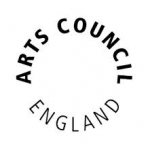Author Archives: Marvin
spending review- communities
November 26, 2015
 The extract from George Osborne relating to communities and the confirmation of Big Lottery being safe from funding cut…. for the moment.
The extract from George Osborne relating to communities and the confirmation of Big Lottery being safe from funding cut…. for the moment.
‘One of the best investments we can make as a nation is in our extraordinary arts, museums, heritage, media and sport.
£1 billion a year in grants adds a quarter of a trillion pounds to our economy – not a bad return. So deep cuts in the small budget of the Department of Culture, Media and Sport are a false economy.
Its core administration budget will fall by 20%, but I am increasing the cash that will go to the Arts Council, our national museums and galleries.
We’ll keep free museum entry – and look at a new tax credit to support their exhibitions and I will help UK Sport, which has been living on diminishing reserves, with a 29% increase in their budget – we’re going for gold in Rio and Tokyo.
The Right Honourable Member for Hull West and Hessle has personally asked me to support his city’s year of culture – and I am happy to do so.
The money for Hull is all part of a package for the Northern Powerhouse which includes funding the iconic new Factory Manchester and the Great Exhibition of the North. In Scotland, we will support the world famous Burrell Collection.
While here in London we’ll help the British Museum, the Science Museum, and the V&A move their collections out of storage and on display.
And we will fund the exciting plans for a major new home for the Royal College of Arts in Battersea.
And we’re increasing the funding for the BBC World Service, so British values of freedom and free expression are heard around the world.
And all of this can be achieved without raiding the Big Lottery Fund as some feared. It will continue to support the work of hundreds of small charities across Britain.
So too will our £20 million a year of new support for social impact bonds’
Lottery Relief for Communities!!!
November 25, 2015
 The government will not cut funding to the Big Lottery Fund, in a move hailed as a “major win” for the voluntary sector.
The government will not cut funding to the Big Lottery Fund, in a move hailed as a “major win” for the voluntary sector.
Prime Minister David Cameron was the first to announce the decision during Question Time, and this was followed by George Osborne’s spending review announcement.
The Chancellor announced grants for science, sports and the arts and said: “All of this can be achieved without raiding the Big Lottery Fund as some feared. It will continue to support the work of hundreds of small charities across Britain.”
A Big Lottery Fund spokeswoman said: “After recent uncertainty we are pleased there is no change to the distribution of funds raised by the National Lottery. We look forward to continuing our work supporting thousands of projects every year across the UK.”
The Big Lottery Fund was formed in 2004 by the merger of two National Lottery distributers. Since June 2004 it has awarded more than £9bn to a community projects supporting health, education, environment and charitable purposes.
Dan Corry, chief executive of New Philanthropy Capital, said the safe-guarding of BIG represented a “major win” for the voluntary sector:
“The protection of the Big Lottery is a major win for the voluntary sector, and a welcome sign of what organisations big and small can do when working together,” he said. “As well as helping small charities who rely on money from BIG, the Chancellor has made a smart political choice.
“All those thousands of small charities have MPs to whom they can complain, many of whom would have taken it up with ministers. The Treasury may have saved itself a headache.”
Fears that the spending review would see severe cuts to the Big Lottery Fund – which could have represented cuts of £320m per year – first emerged earlier this month from an anonymous campaign group.
The group’s campaign saw both NCVO and Acevo call on the government for “urgent clarification” over the rumoured cuts.
Karl Wilding, director of public policy at NCVO said: “All the intelligence we were receiving showed that there was a real danger of cuts to Big Lottery Fund spending.
“So we want to say a big thank you to all the small charities who lobbied their local MPs to ensure this cut didn’t happen. It’s also good to see that funding for arts and sports were not cut, even though BIG wasn’t raided.”
Shadow minister for civil society Anna Turley said it was “great news” for the Big Lottery Fund.
“This is great news and down to the excellent pressure from the sector speaking against the reported cuts and the Westminster Hall debate yesterday which highlighted the good work charities are doing across the country,” she said.
“I know it will be a massive relief to many organisations who rely on Big Lottery grants to support their vital work. I am pleased the government have seen sense and promised to protect this important source of funding.”
Hands off George!- Threat to Lottery Grants
November 22, 2015
A campaign has been launched called “Save the Big Lottery Fund” that claimed a £320m diversion of BLF funds was going to be announced in the Autumn Statement to compensate for forthcoming cuts to the arts and sports sectors.
Why it matters – the big and the small
Charities benefit from funding from all of the Lottery distributors, but the Big Lottery Fund is – as its name suggests – the biggest. It’s funding is worth around £500m a year, of which 95% goes to voluntary organisations. This makes it the single largest funder of the voluntary sector in the UK.
Despite its name, the other important thing to note is that BLF’s grants are primarily small. 90% of its grants are for less than £10k. This vital source of funds for small organisations enables people to come together in support of their communities and deliver projects that make a real difference.
The arts, heritage and sports distributors make a valuable contribution to our communities and national life. The government it is rumoured are looking to mitigate the worst impact of potential DCMS cuts. But using Lottery cash is not the right way to do this. The Additionality principle means that government should not use Lottery Funds to back fill spending cuts.
Finally, it need hardly be said, but charities are under a great deal of pressure and will be further squeezed by cuts to be announced next week. The sector currently receives £13bn in income from government grants and contracts, much of which could be at risk in the coming years.
Even bigger issues
BLF is only one of a list of potential threats to the voluntary sector. As mentioned above, cuts to frontline services, particularly local services, are likely to have a much bigger impact.
And with Chancellor’s announcement of devolving business rates to LAs, we have also been seeking confirmation that charities will continue to be exempt from paying 80% of these rates. On this, we have had slightly more reassuring sounds from HMT. The success of the sector’s 2012 “Give It Back George” campaign perhaps not so far forgotten in some quarters.
What can I do?
Call or email your local MP today and tell them how vital BLF funds are to organisations in your community. A full list can be found by searching here.
Sources: ACEVO, #savebiglottery, BBC News.
Funding support for your community building
September 14, 2015
 Can Do Communities is a Community Interest Company that has helped many charitable groups explore taking over the management or ownership of a community building from the Local Authority.
Can Do Communities is a Community Interest Company that has helped many charitable groups explore taking over the management or ownership of a community building from the Local Authority.
We have a wide range of experience built over many years in helping organisations build their capacity to be able to make informed decisions on the viability of their project.
We can assist you in identifying your needs and they can range from: Building Survey’s, Business Planning, Governance Issues, Financial Planning, Market Research, Community Consultation, Project Management, Organisational Away Days, Architect Option Appraisals and general hands on advice around exploring taking on your community building from the Council on a long term lease or freehold.
We understand that all of the above can cost money that charitable organisations cannot always afford, so we help if we can identify a relevant funding stream that might consider funding your requirements.
If you are exploring any of the above issues then feel free to call the Can Do Communities office to receive some no cost advice, we would love to hear from you! 01733 200906.
Arts Council England Launches Creative Local Growth Fund
August 5, 2015
 Arts Council England has launched the new Creative Local Growth Fund to support the cultural sector to help contribute to local economic growth.
Arts Council England has launched the new Creative Local Growth Fund to support the cultural sector to help contribute to local economic growth.
Arts Council England is offering grants through the Creative Local Growth Fund to help put culture at the heart of local economic growth plans. It will do this by:
- Securing long term partnership between LEPs, other local partners and the cultural sector.
- Helping to leverage support from European Structural and Investment Funds, and potentially other funds within the LEP area, into the cultural sector.
In particular, Arts Council England wants to see this programme supporting growth of small and medium sized enterprises (SMEs) in the creative and cultural sectors. The central aims of the fund are to:
- Secure long term partnership between LEPs, the Arts Council and other local partners to support the cultural sector.
- Lever ERDF investment, and potentially investment from other funds within the LEP area, into the cultural sector.
- Enable the sector to become more resilient in line with Goal 3 of the ten-year strategy: Great art and culture for everyone.
- Deliver against at least one of our other five goals in Great art and culture for everyone.
Grants made under this strategic fund should be used as match funding for investment delivering under ERDF, or from other ESIFs, for example the European Social Fund (ESF).
Eligible applications must be collaborative, for example, with one or more arts and/or cultural organisation working with LEPs and, potentially, other public sector bodies such as local authorities, further education colleges or universities.
A total of £3,000,000 is available for the fund, with indicative budgets of £1,500,000 being available in 2015/16 and £1,500,000 in 2016/17.
Applicants can apply for grants between a minimum of £150,000 and a maximum of £500,000.
The kinds of activity funded could include:
- Skills development, apprenticeships and paid internships
- Innovation, research and development
- Partnerships with other sectors (private sector, higher and/or further education, other public agencies)
- Commercialisation of cultural products
- Building digital capacity
- SME and start-up business support
- Development of specific creative industry clusters and the role of the arts sector within them.
The deadline for Round One applications is 16 October 2015 (12pm).
For more information, visit Art Council England’s website.
Source: Art Council England, 22/07/15

